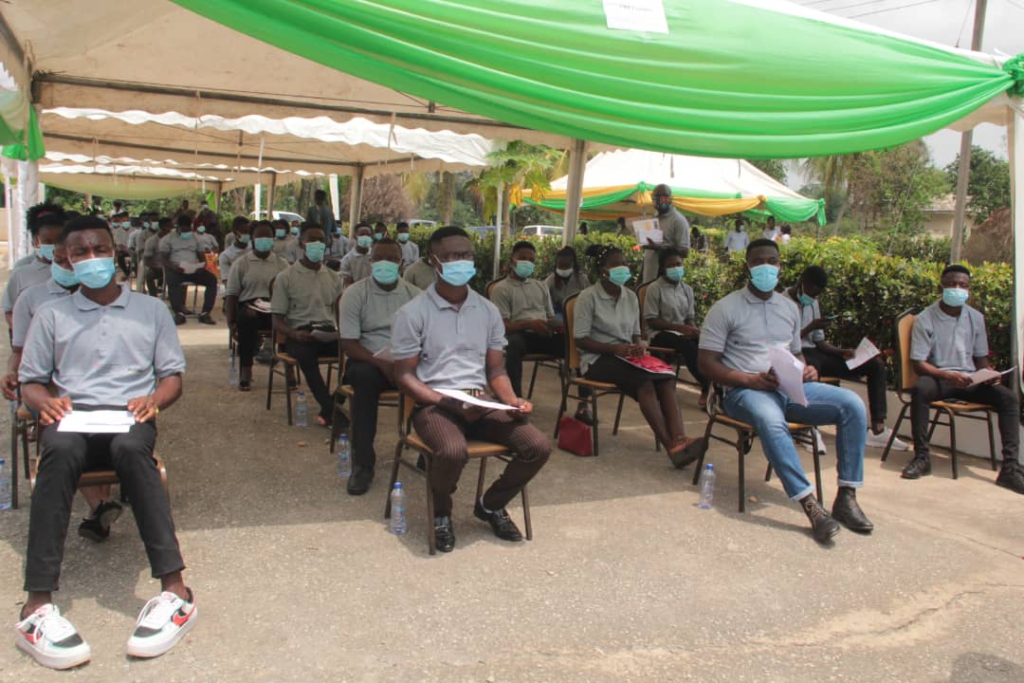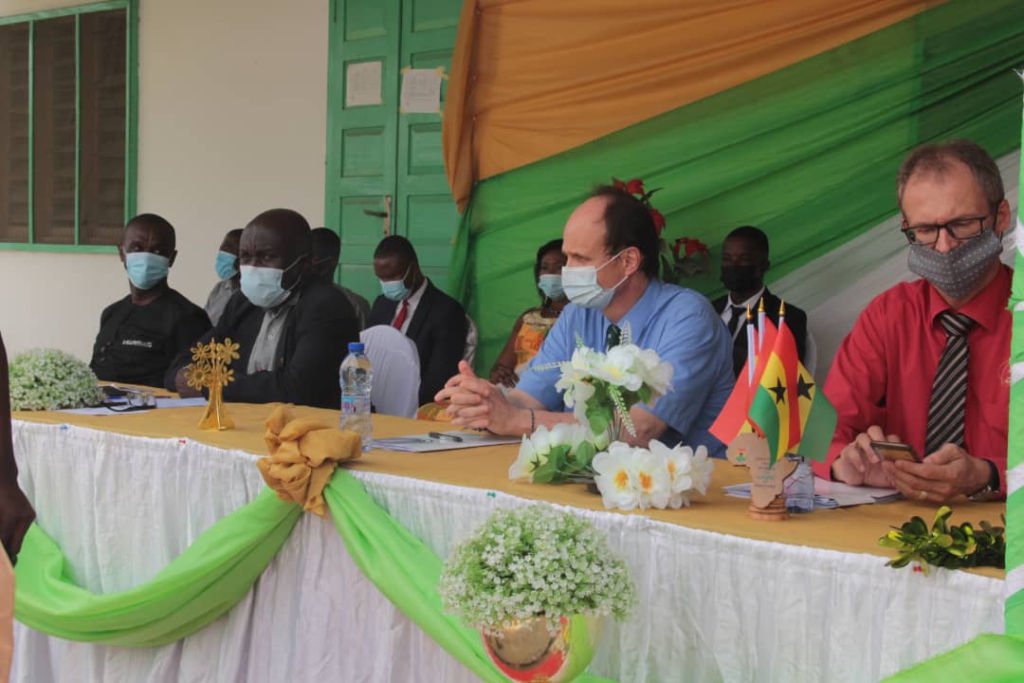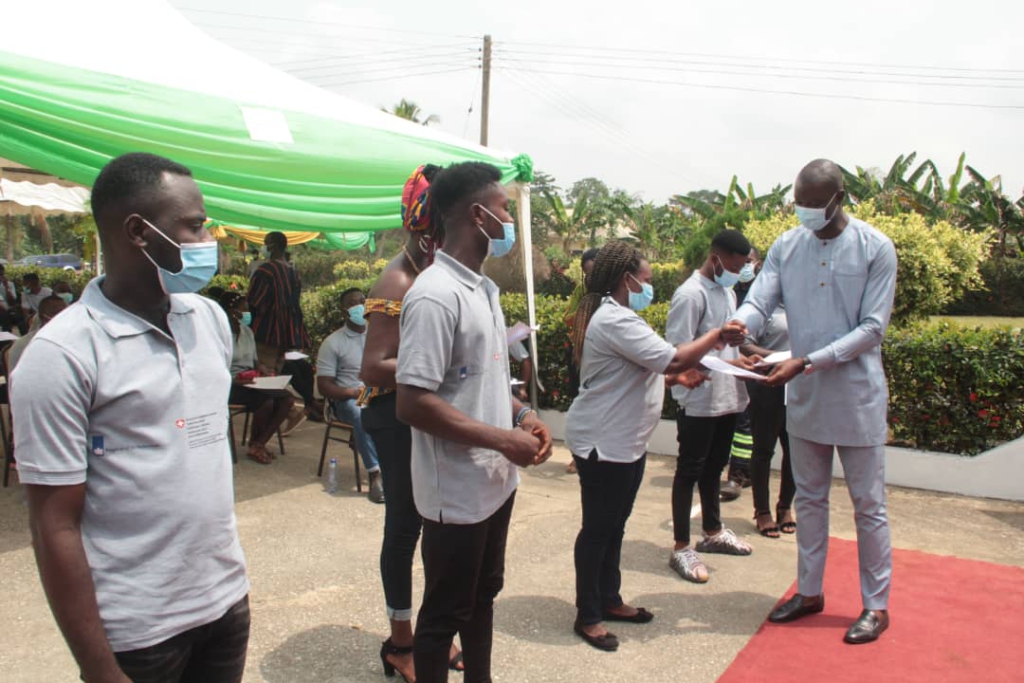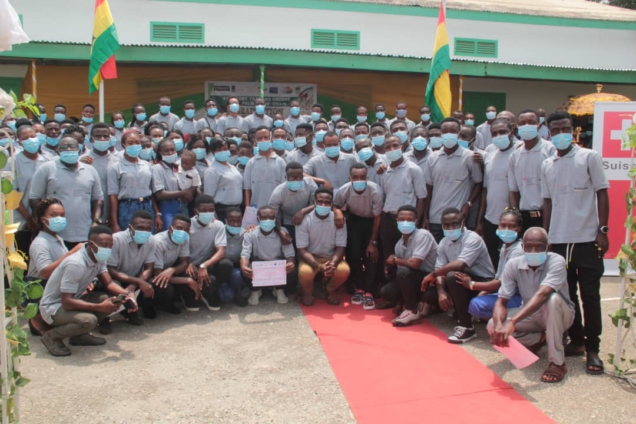A total of 101 learners who underwent ten weeks of competency-based training in oil palm under the Agricultural Technical and Vocational Education Training (ATVET) initiative of the Government of Ghana have graduated.
The program was under the auspices of international civil society organization, Solidaridad and held at the University College of Agriculture and Environmental Studies (UCAES), at Bunso in the Eastern region of Ghana.
The training seeks to build the skills of the youth for employment and entrepreneurship in the oil palm sector.

The first of its kind in the country, the training is accredited by the Council for Technical and Vocational Education Training (COTVET), the national regulator, and would be in two batches.
The initial batch of learners, drawn from oil palm-growing 146 communities and oil palm enterprises in the Ashanti, Ahafo, Central, Eastern, Western, Western North, Oti and Volta regions of Ghana underwent both instruction time and internship.
Over five hundred learners from five educational institutions accredited by COTVET run the training programme to provide support in six modules including nursery establishment, land preparation and plantation establishment, harvesting, farm management, processing and quality assurance and agribusiness management.
Solidaridad developed the competency-based training in partnership with the Ghana Skill Development Initiative under the implementation of the second phase of its Sustainable West Africa Palm Oil Programme (SWAPP II).

The Dutch Ambassador, Ron Strikker in a speech reiterated the importance of technical and vocational education to the development of any economy. He said that the Dutch government was extremely delighted that a competency-based programme in oil palm — an idea that was conceived two years ago — had finally come to fruition.
He disclosed that the Dutch government has jointly supported the development of the oil palm sector in Ghana with the Swiss government through the Sustainable West Africa Palm Oil Programme being implemented by Solidaridad because it recognises the value of vocational and technical education.
“For us, we see opportunities to continue supporting the government of Ghana in its development agenda,” Mr Strikker said.
Congratulating the learners for a successful training, the Swiss Ambassador to Ghana, Philpp Stalder commended the government of Ghana for investing in vocational and technical education.
He said the Swiss embassy was looking forward to further areas of collaboration with Ghana to realise greater impact in competency-based training in the oil palm, cashew and other agriculture sub-sectors as it has done in the last three years.

In his speech delivered on his behalf, the Regional Director of Solidaridad West Africa, Isaac Gyamfi said the competency-based training fits with Solidaridad’s Theory of Change, which is that efficiency in supply chains cannot be achieved if the actors in the sector are not business-minded and lack the right skillset to capitalize on opportunities.
He said it was for this reason that the right investment must be made to create agri-entrepreneurs to adopt technologies and create value-addition businesses that support farm workers to develop entrepreneurial skills aside from their technical know-how.
This, he said, is crucial for the sustainability of Ghana’s oil palm sector and to improve productivity to match leading producers like Malaysia and Indonesia.
“Solidaridad’s work does not end when the learners receive their certificates. This is because, the end game for us is to enable the learners to find jobs in the oil palm sector as workers or entrepreneurs and contribute to the sustainable growth of the sector,” Mr Gyamfi added.
The competency-based training programme in oil palm is supporting the youth learners with funding from the Embassy of the Kingdom of the Netherlands in Accra, the Swiss government through its State Secretariat for Economic Affairs (SECO), and the Deutsche Gesellschaft für Internationale Zusammenarbeit GmbH (GIZ).
The beneficiary institutions include the University College of Agriculture and Environmental Sciences (UCAES) in the Eastern Region, Kumasi Institute of Tropical Agriculture (KITA) in the Ashanti Region, Asuansi Technical Institute in the Central Region, Father Dogli Memorial Technical, Vocational Institute in the Oti Region and Kpando Technical Institute in the Volta Region.
Latest Stories
-
NDC’s running-mate speech proves readiness to lead – Asah-Asante
9 mins -
Further win for nibima as another KNUST study supports medicinal prowess
11 mins -
World Bank’s food price index eases; maize, wheat prices hit 3-year low
2 hours -
2020 polls all about pulling Ghana back from precipice of destruction, corruption – Naana Jane
2 hours -
Guru expresses interest in contesting SRC election at UG
2 hours -
Oil prices projected to average $84 in 2024 – World Bank
2 hours -
Meet 2 Ghanaian entrepreneurs on a mission to connect 1m African professionals to global companies by 2034
3 hours -
NCA approves Starlink’s satellite broadband application
3 hours -
Government orders FGR to revamp mining operations; assures workers of commitment to their welfare
3 hours -
Arne Slot philosophy could suit Liverpool – Van Dijk
3 hours -
EC replies Mahama: You also appointed someone who was tagged NDC
3 hours -
See colourful outdoor of Prof Naana Opoku-Agyemang as NDC’s running mate
3 hours -
Akufo-Addo commissions 15MWP Kaleo Solar Power Plant
4 hours -
GCB Bank PLC leads African financial integration, hosts ZICB delegation
4 hours -
Empowering Girls in ICT: FAWE Ghana advocates for gender equality in the Tech sector
5 hours

